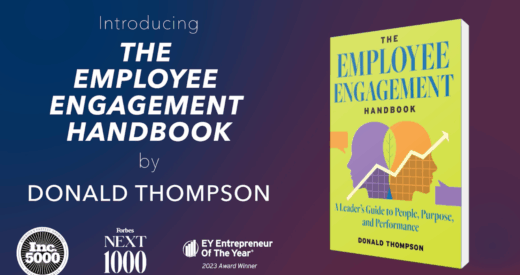There are many factors you can control as a CEO; the state of the economy is unfortunately not among them. With today’s fluctuating financial trends, even the hint of a recession on the horizon can strike fear into the hearts of business leaders and quickly turn their attention to budget-cutting.
How can you stay one step ahead of an economic downturn? What spending reductions should (or shouldn’t) you prioritize in anticipation of upcoming financial challenges? And more specifically, should your Diversity, Equity and Inclusion (DEI) initiative be one of the programs on your budget chopping block?
Let me cut to the chase by answering that last question first: I believe that maintaining a steady DEI budget in both good times and bad is a best practice for all companies, across industries. Here’s five reasons why.
Top 5 Reasons to Maintain Your DEI Budget
- DEI can strengthen a company’s ability to weather a down economy. The findings of numerous national studies, combined with my own experience working with dozens of top-performing corporations nationwide, have convinced me that DEI builds internal strengths that a business needs more of, not less, during tough economic times. DEI can positively impact a company’s bottom line through increased productivity and profitability; enhance brands; improve talent acquisition and retention of valuable employees; increase innovation and innovation-related profit; and give teams the ability to make better and faster business decisions. One recent study showed that companies with consistently inclusive workplaces thrived before, during and after the Great Recession of 2007-2009, earning a 4x annualized return.
- DEI is integral to core values and brands. When times get tough, companies should double-down on the strength of their core values, not abandon them. This includes a commitment to DEI. To decrease or even eliminate DEI risks reputational damage that will be difficult to repair down the road. Companies that are successful with DEI “walk their talk” daily. Your DEI department needs an adequate budget to ensure that your DEI program steadily generates both visibility and meaningful action.
- DEI initiatives are built over time. It doesn’t make sense to dismantle or hobble a DEI program that your company has spent significant time, effort and resources to create, perhaps over a period of many years. Instead, look to trim assets or programs you could rapidly replace or recreate if needed. Economic conditions can change quickly. Be careful not to de-fund personnel, capabilities or assets that you’ll wish you had back when conditions improve. Your investment in DEI will continue to pay dividends if you stay the course.
- Other cost-cutting options are more effective. On a practical level, cutting back your DEI budget frankly won’t provide significant savings. I advise my clients to allocate a minimum of 2-3% of their operating budget to DEI annually. Nearly all of them have found that this comparatively small investment generates great returns and outsized impact. You likely have a range of superior options to improve your company’s financial picture, including increasing operating efficiencies and/or productivity; cutting waste or wasted effort; eliminating unprofitable product or service lines; closing out unprofitable business locations or unproductive customer relationships. Explore these options in addition to potential budget cuts.
- Even in a recession, investing in people and workplace culture is essential. For many companies, personnel is their largest single line item. Cutting staff may become necessary. But keep in mind that layoffs often bring repercussions, such as direct costs (e.g., severance pay, overtime wages, hiring temporary help); decreased employee loyalty and retention; increased employee resignations; and added stress for the employees who remain.
When faced with a down economy, stay cool, calm and strategic. It makes sense to actively revise your corporate budget, but modify it thoughtfully – with a scalpel, not a meat cleaver. Remember that your revised budget must continue to achieve two concurrent goals that DEI supports: operating efficiency and strategic growth. Cut too deeply, and you’ll hamper your company’s ability to accomplish one or both.
The national and global economic outlook is always in flux. As a business leader, it can be energizing to hope for the best but wise to prepare for the worst. Periodically take a realistic look at how a downturn would likely impact your specific industry and company. This picture will undoubtedly vary depending on the unique profile of your business. During the dire conditions of the COVID pandemic, for example, many industries worldwide took a major hit, but some well-prepared industries and businesses thrived.
How might your company’s geographic footprint, technology, intellectual property, or other assets and circumstances protect you during a down economy? What aspects of your business would be most vulnerable? Do scenario planning with your finance team to keep your calculations and preparedness a valuable step ahead. Also, remember that economic downturns sometimes create new kinds of market opportunities, even as they eliminate others. The silver lining of economic pressures can be the impetus and opportunity to actively streamline and enhance how your business operates.
Make sure that the financially leaner organization you are designing with your new budget has the ability to weather the specific type and length of economic storm you anticipate. For smooth sailing, you’ll need both a tight ship and a loyal crew. DEI can help you to achieve both.




